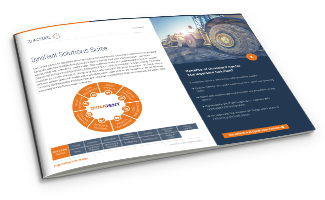Cloud-Based Rental based on Dynamics 365
 Michiel Toppers
Michiel Toppers
Table of contents
The whole world is moving to the cloud, and it is not just because it is the latest in digital technology but because there are many advantages to doing so. We are sure that even as we talk about the benefits of cloud-based technology, the pitfalls would come to mind. That is what this article is going to be all about—maximizing the benefits and mitigating the pitfalls but in the rental business context. Let us start by looking at what rental companies require and then move on to discovering if cloud ERP can deliver those features.
In the rental business, these could be the main functionalities that could play a pivotal role:
- The ability to manage the entire funnel of the transaction, which is to start from lead and end up with a quote
- Provide customers with the option to view the equipment on offer for authenticity and providing them the opportunity to make an informed decision and ensure return on investment
- Establish an always-updated connection between the front office and back office operations to be able to deliver value
- Have automatic alerts for delivery dates, the current location of assets, maintenance alerts, and other details for logistics management

Information at a glance: Microsoft Dynamics 365 for Finance and Operations can help you get all the data you need to nurture your customer from the lead to the quote cycle. Insight into the prior transaction, the history of the equipment, the availability schedule, and the option to attach files like specification sheets, contracts, receipts can make the whole process flow smoothly.
Streamlined delivery: Like any other industry or probably more so, customers in the rental sector want delivery at the specified time. The option for real-time tracking of assets, remote update of status, delivery schedules and best routes can streamline the delivery process. Even delivery acknowledgements can be instantly updated so that the information is updated.
Unique customer experience: When you can look at a customer’s history that includes details of prior transactions, it can add to the way you address their needs. You can get information like their payment history, previous quotes, etc. and use the details as an aid to enriching the customer experience.
Asset management: Information like where the equipment, how long it has been rented, the transport time, the distance between sites, and more can help you manage assets better. These details again add to the customer experience.
Workaround maintenance schedules: When you rent out equipment to a customer, you want to make sure that it is in good shape, which means timely maintenance. You can schedule your rentals as per the maintenance requirements of the equipment.
Track ROI on each equipment: Getting the history of each rental equipment and the pricing for it would enable you to track the ROI. These insights can be used for further planning to maximize returns.
Interested in discussing cloud-based ERP offerings for Microsoft Dynamics 365 for Finance and Operations for your rental business?


